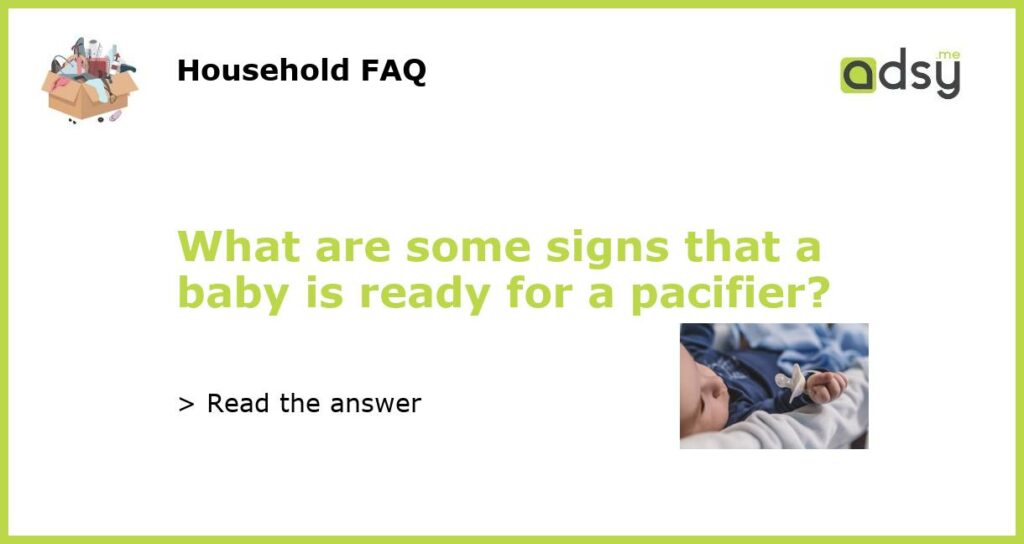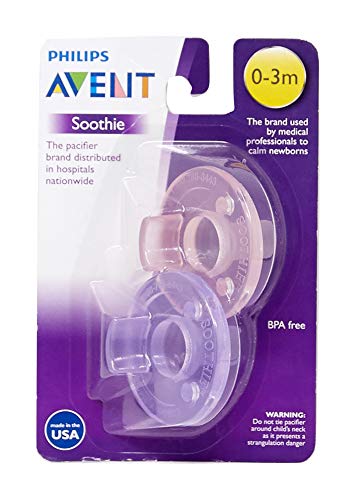Signs that a baby is ready for a pacifier
As a parent, it can be challenging to determine when your baby is ready for a pacifier. While some babies take to pacifiers easily, others may not show much interest. However, there are a few signs that can indicate your baby is ready for a pacifier. Understanding these signs can help you introduce a pacifier at the right time and enhance your baby’s comfort and soothing.
Increased sucking reflex
One of the clear signs that your baby is ready for a pacifier is an increased sucking reflex. Babies have a natural instinct to suck, and if they are constantly sucking on their hand, fingers, or even your fingers, it may be an indication that they are ready for a pacifier. The sucking reflex is not only for feeding but also serves as a self-soothing mechanism for babies. Observing their sucking patterns can give you insights into when a pacifier might be beneficial.
Difficulty in self-soothing
Babies go through phases where they struggle to self-soothe. If you notice that your baby is having difficulty settling down, falling asleep, or calming themselves, a pacifier can be a helpful tool. The sucking motion provided by a pacifier can help babies relax and soothe themselves. It can provide them with comfort and mimic the sucking action they associate with feeding. If your baby is struggling to calm down on their own, introducing a pacifier may be a good solution.
Increased interest in objects
When babies start showing an increased interest in objects around them, it may be a sign that they are ready for a pacifier. If your baby reaches out for toys or other objects and tries to put them in their mouth, it could indicate a desire for oral stimulation. This can be an indication that a pacifier would be well-received by your baby. They may find comfort and satisfaction in the sensation of having something to suck on and explore with their mouths.
Frequent nighttime waking
Another sign that your baby may be ready for a pacifier is frequent nighttime waking. Babies often wake up during the night due to various reasons, such as hunger, discomfort, or the need for soothing. If you find that your baby wakes up frequently and seems to have difficulty falling back asleep, a pacifier can be a helpful tool. The sucking motion offered by a pacifier can help calm your baby and encourage them to settle back into sleep.
Nipple confusion
If your baby is experiencing nipple confusion, introducing a pacifier can be a helpful solution. Nipple confusion occurs when a baby struggles to switch between breastfeeding and bottle-feeding. The different mechanisms for sucking and swallowing involved in breastfeeding and bottle-feeding can sometimes cause confusion for babies. Introducing a pacifier can help bridge the gap and provide a familiar sucking experience that complements breastfeeding. It can help satisfy your baby’s oral needs without interfering with their ability to breastfeed effectively.






